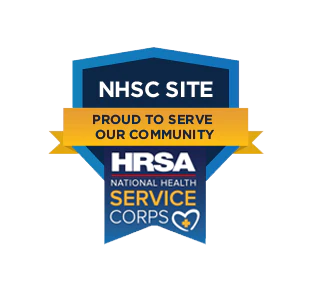
This blog post was written by Monica Reu, LCSW, CADC, a Behavioral Health Therapist at the Beloit Area Community Health Center.
Use affirmations to improve your overall self-esteem
What if you could think your way to having improved self-esteem? Would you do it?
Affirmations are a popular way to help combat low self-esteem in both adults and adolescents (Bloch & Merritt, 1993; Lynch & Graham-Bermann, 2000).
What are affirmations?
To put it simply, affirmations are positive phrases or statements that are used to challenge negative or unhelpful thoughts. They are encouraging statements, reminders, and positive comments aimed to help improve one’s thoughts.
Does it really work?
Science says yes. One of the theories behind positive affirmations is the self-affirmation theory (Steel, 1998).
The self-affirmation theory is “the notion that although people try to maintain specific self-images (such as “being a good student” or “being a good family member”), that is not their primary motivation. Rather, individuals are motivated to maintain global self-integrity, a general perception of their goodness, virtue, and efficacy” (Steel).
Essentially, this means that if a person can feel relatively positive about themselves in one area, they are more willing and able to tolerate a threat to their integrity in another area. There is MRI evidence suggesting that certain neural pathways are increased when people practice self-affirmation tasks (Cascio et al., 2016).
If you want to be super specific, the ventromedial prefrontal cortex—involved in positive valuation and self-related information processing—becomes more active when we consider our personal values (Falk et al., 2015; Cascio et al., 2016). Affirmations can work because they have the ability to program your mind into believing the stated concept.
The benefits of stating affirmations
There are a lot of physical and mental benefits to engaging in stating affirmations. They have been shown to decrease health-deteriorating stress (Sherman et al., 2009; Critcher & Dunning, 2015), and they may help us to perceive otherwise “threatening” messages with less resistance (Logel & Cohen, 2012). Additionally, self-affirmations has been demonstrated to lower stress and rumination (Koole et al., 1999; Wiesenfeld et al., 2001).
As inherently positive statements, affirmations are designed to encourage an optimistic mindset, and optimism in itself is a powerful thing. See references for additional research and information.
OK, so it can work. How do I do it?
One simply listens to and/or states positive and encouraging remarks and comments to oneself. Affirmations can work because they have the ability to program your mind into believing the stated concept. For example, “I am a strong individual” or “I can handle this today”. They could also be goal-focused such as “I am walking across the stage to get my diploma” and “I am confident I will do well in this interview today”.
Some tips on using and practicing affirmations:
- Start with “I am”
- State it in the positive, affirm what you want, not what you don’t want.
- Make it specific.
- Keep it brief.
- Try to do it on a daily basis
- Make affirmations about and for yourself, not others













